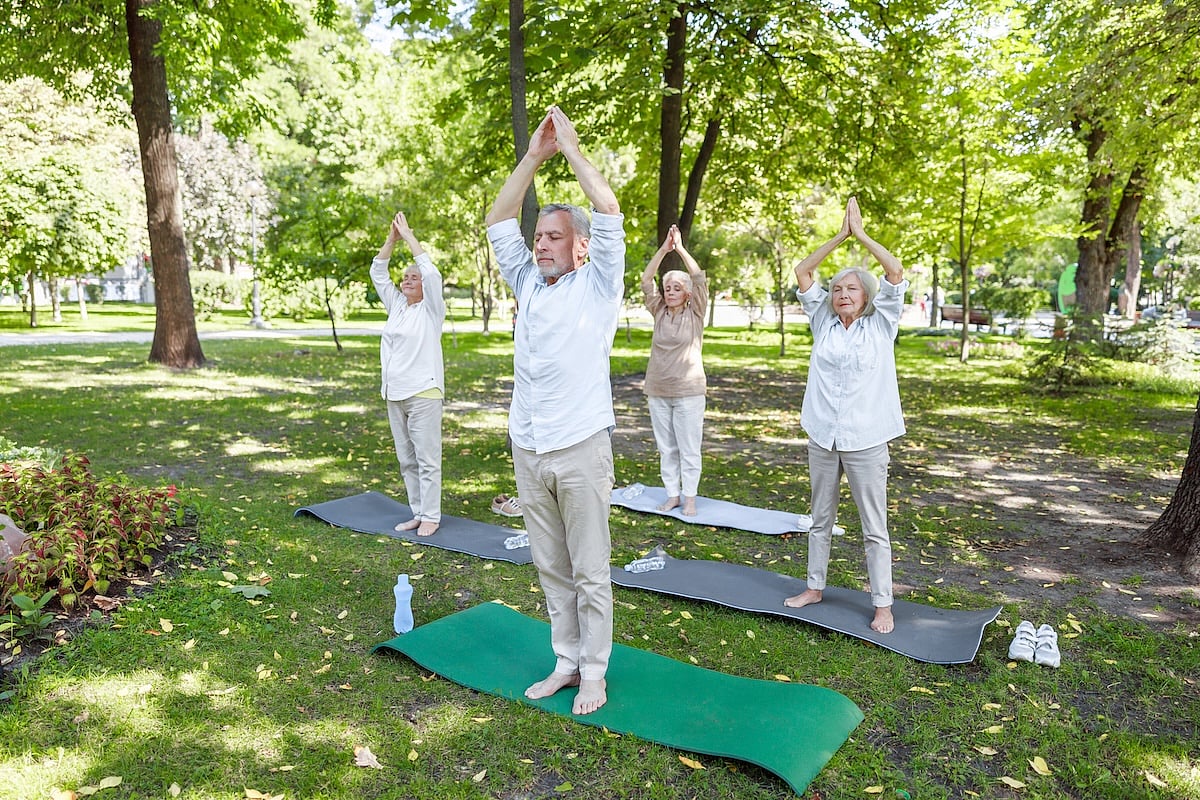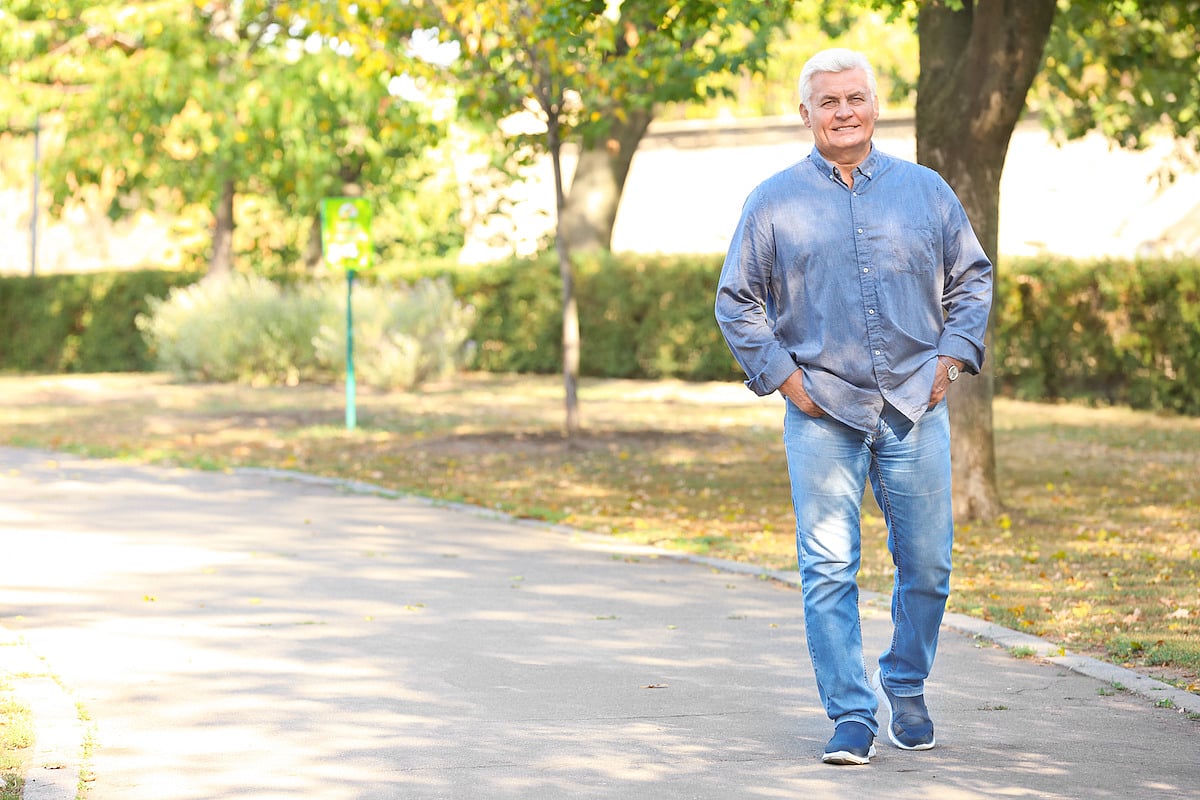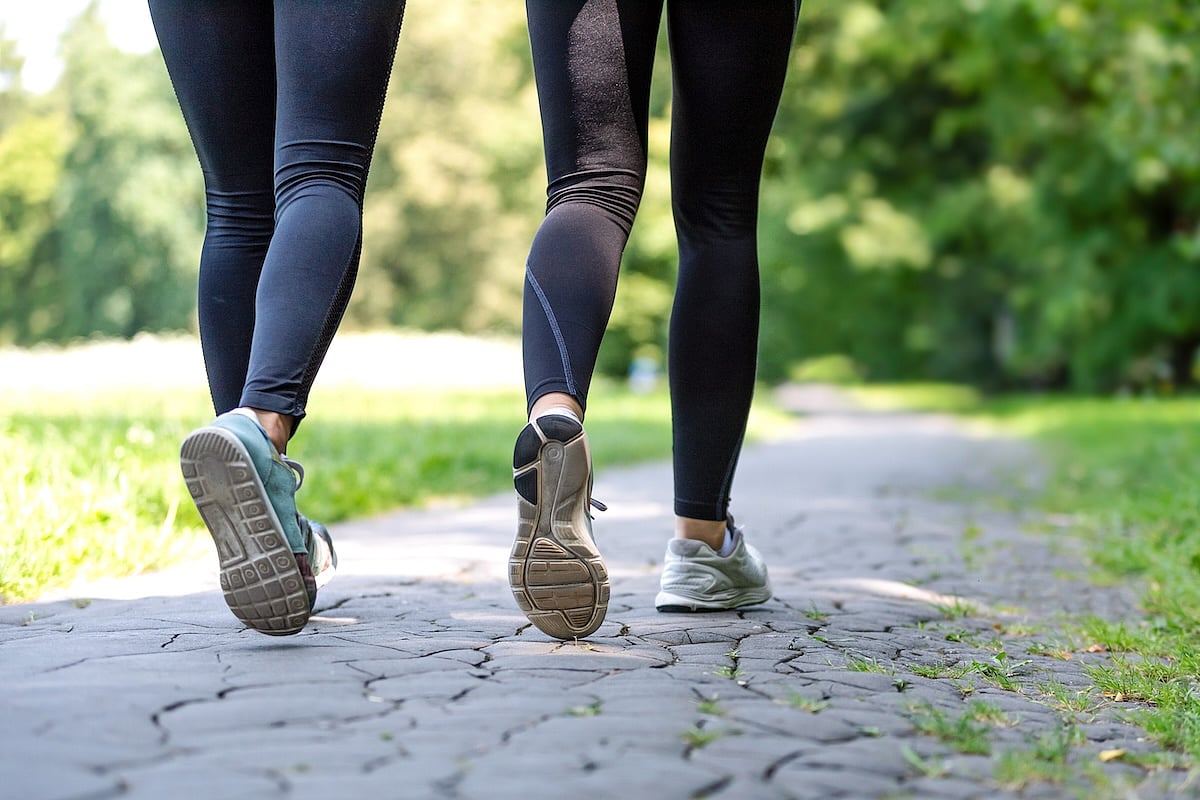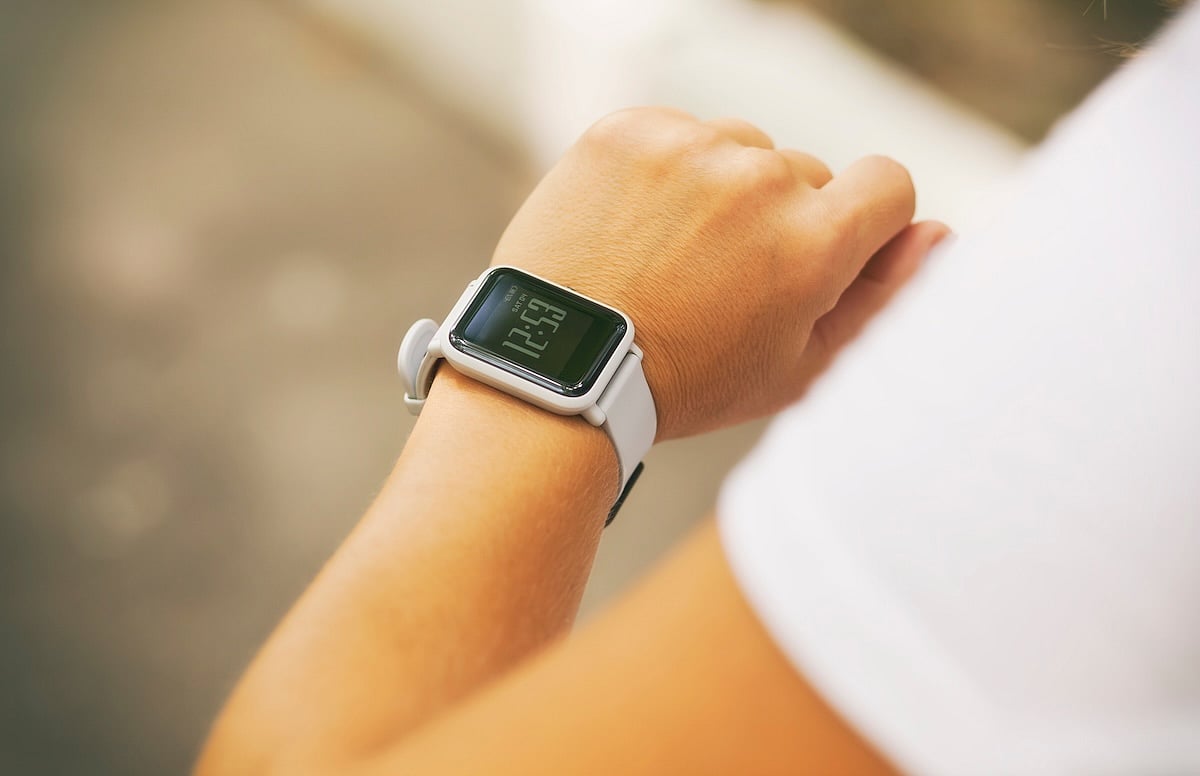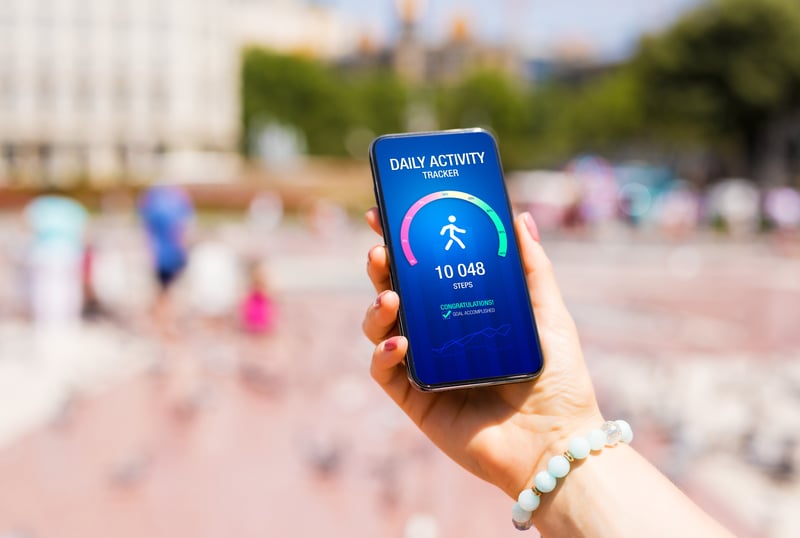Get Healthy!
Results for search "Exercise: Walking".
31 Oct
One Long Walk Beats a Dozen Little Ones When It Comes to Your Heart
A new study finds taking one 10–15-minute walk lowers heart disease and death risk significantly more than taking several short strolls, even when total steps are the same.
08 Aug
High Blood Pressure? Start Walking Smarter
A new study finds walking more and walking faster cuts the risk of major heart events in people with and without high blood pressure.
Health News Results - 74
An ancient Chinese mind-body practice can lower a person’s blood pressure as well as medication or a program of brisk walking, a new study says.
Baduanjin is a widely practiced eight-movement sequence that combines slow, structured movement, deep breathing and meditation.<...
- Dennis Thompson HealthDay Reporter
- |
- February 19, 2026
- |
- Full Page
Health-conscious folks are used to strapping a Fitbit to their wrist or a step counter to their belt before they start walking or jogging.
But new research is opening the door to “smart clothing” that would count a person’s steps or track their movement without r...
- Dennis Thompson HealthDay Reporter
- |
- February 18, 2026
- |
- Full Page
A mom with multiple sclerosis (MS) struggled to keep her balance, frustrated by her frequent missteps and stumbles.
But what really hurt was her 6-year-old daughter’s reaction to her plight.
“My daughter told me to stop walking with them basi...
- Dennis Thompson HealthDay Reporter
- |
- February 18, 2026
- |
- Full Page
A common diabetes drug could be sabotaging the health benefits that a patient might expect from a daily walk, a new study says.
Metformin appears to blunt improvements in blood pressure, fitness and blood sugar control that normally come from regular exercise...
- Dennis Thompson HealthDay Reporter
- |
- November 12, 2025
- |
- Full Page
Cities can be designed in ways that promote walking, providing residents with built-in health benefits, a new study says.
People who live in more walkable cities do indeed get more daily steps, researchers reported Aug. 13 in the journal
Slightly altering your stride while walking could considerably ease pain caused by wear-and-tear knee arthritis, a new study says.
Foot positioning while walking can reduce stress on a person’s knee joint, researchers reported Aug. 12 in
Adding distance to your daily walk and picking up your pace can help reduce risk of heart problems associated with high blood pressure, a new study says.
Compared to a minimum step count of 2,300 steps, every 1,000 additional steps are associated with a 17% lower risk of heart att...
- Dennis Thompson HealthDay Reporter
- |
- August 7, 2025
- |
- Full Page
Want to cut your odds of an early death by almost 20%? Take just 15 minutes out of your day for a brisk walk, researchers advise.
While it’s known that regular walking is healthy, the new study suggests maintaining a peppy pace is key.
“Individuals should strive to incorporat...
- HealthDay Reporter
- Ernie Mundell
- |
- July 29, 2025
- |
- Full Page
Walkers don’t need to march 10,000 steps a day to gain substantial health benefits, a comprehensive new evidence review has concluded.
Instead, getting just 7,000 steps a day appears to be most effective in reducing a person’s risk of death and chronic illness, researchers reported today in
Putting a little more pep in the step could help elderly folks improve their health and remain independent, a new study says.
Older adults who slightly increased their walking cadence wound up with substantial improvements in physical function, researchers reported July 17 in the ...
- HealthDay Reporter
- Dennis Thompson
- |
- July 21, 2025
- |
- Full Page
A seven-second head start for pedestrians can save lives and prevent injuries at busy intersections, a new study says.
Pedestrian-related injuries dropped by 33% at crosswalks where New York City rejiggered traffic lights to give walkers those extra seven seconds, researchers report in the journal N...
- HealthDay Reporter
- Dennis Thompson
- |
- July 21, 2025
- |
- Full Page
Struggling with low back pain? Slip on your walking shoes and start hoofing, a new study suggests.
People who walked more than 78 minutes a day were less likely to suffer from low back pain, researchers reported.
Power walking also protected against low back pain, but to a l...
- HealthDay Reporter
- Dennis Thompson
- |
- June 17, 2025
- |
- Full Page
Long brisk walks might lower a person’s risk for heart rhythm problems, a new study says.
Folks who stride faster than 4 miles per hour have a 43% lower risk of developing an abnormal heart rhythm, compared with those who amble at a pace of less than 3 miles an hour, researc...
- HealthDay Reporter
- Dennis Thompson
- |
- April 16, 2025
- |
- Full Page
Folks frequently use their smartwatches to monitor their daily step count, aiming to get enough physical activity to improve their health.
But smartwatches are tracking another measure of health that could prove even more important, a new study suggests.
Smartwatches ...
- HealthDay Reporter
- Dennis Thompson
- |
- March 24, 2025
- |
- Full Page
Stroke patients leave the hospital with better prospects if they’re forced to hoof it more during recovery, a new study suggests.
Adding a half-hour of progressive walking exercises to standard stroke rehab measurably improves patients’ quality of life and mobility by the time they go home, researcher...
- HealthDay Reporter
- Dennis Thompson
- |
- February 21, 2025
- |
- Full Page
Does a crowded neighborhood make you move more?
Yes, says new research that found people who live in highly populated areas walk more than people who live in less densely populated areas.
Since more walking is connected to better health, generally speaking, the ex...
- HealthDay Reporter
- Denise Maher
- |
- December 17, 2024
- |
- Full Page
Can you literally step away from depression?
A new global review of data found that "increasing the number of daily steps, even at modest levels, was associated with a reduction in depressive symptoms."
The Spanish study found that up to a level of about 10,000 steps per day, the odds for depression decline as daily step levels rise.
The findings were published Dec. 16 in th...
- HealthDay Reporter
- Ernie Mundell
- |
- December 16, 2024
- |
- Full Page
It doesn't take much: Adding just five minutes of exercise to your daily routine lowers your blood pressure and might cut your odds for heart disease, new research shows.
“The good news is that whatever your physical ability, it doesn’t take long to have a positive effect on blood pressure," said study lead author Jo Blodg...
- HealthDay Reporter
- Ernie Mundell
- |
- November 7, 2024
- |
- Full Page
Almost 60% of adult Americans said they took a walk over the past week for leisure, and maybe even some healthy exercise, a new federal tally finds.
Data from the 2022 National Health Interview Survey, a representative sampling of U.S. households, found that last year "58.7% of adults walked for leisure in the past 7 days," although just who was walking and who stayed on the couch varied....
- HealthDay Reporter
- Ernie Mundell
- |
- July 31, 2024
- |
- Full Page
Bicycling to work can vastly improve your health and reduce your risk of death, a new study shows.
People who bike commute have a 47% lower overall risk of an early death, researchers found.
They also are less likely to develop heart disease, cancer an...
- HealthDay Reporter
- Dennis Thompson
- |
- July 17, 2024
- |
- Full Page
If you've recovered from lower back pain, try walking away from a recurrence.
New research out of Australia shows that folks who started a walking regimen kept recurrent back pain episodes at bay for much longer than people who didn't.
"We don't know exactly why walking is so good for preventing back pain, but it is likely to include the combination of the gentle oscillatory movemen...
- HealthDay Reporter
- Ernie Mundell
- |
- June 20, 2024
- |
- Full Page
Walking is one of the best exercises available to average folks, and it can be as easy as stepping out your front door, experts say.
"It is something you can easily fit into your lifestyle,"said Dr. James McDeavitt, professor of physical medicine and rehabilitation and executive vice president and dean of clinical affai...
- HealthDay Reporter
- Dennis Thompson
- |
- April 16, 2024
- |
- Full Page
The more steps a person can fit into their day, the lower their risk of early death and heart disease, regardless of how much a couch potato they are otherwise, a new study shows.
People who are sedentary for more than 11 hours a day gain the same health benefits from walking more as more active folks do, researchers found.
The optimal number of daily steps to improve health was bet...
- HealthDay Reporter
- Dennis Thompson
- |
- March 6, 2024
- |
- Full Page
Looking for a workout that will chase the blues away?
Try walking, jogging, yoga or strength training, which a new study reports are the most effective exercises for easing depression. These activities can be used on their own or combined with medication and psychotherapy, according to an evidence review published Feb. 14 in the BMJ
- HealthDay Reporter
- Carole Tanzer Miller
- |
- February 15, 2024
- |
- Full Page
People can walk away their risk of developing type 2 diabetes -- but only if they walk fast enough, a new report finds.
Folks who walk at least 2.5 miles an hour appear to have a significantly lower risk of type 2 diabetes, according to a study published Nov. 28 in the British Journal of Sports Medicine
- HealthDay Reporter
- Dennis Thompson
- |
- November 29, 2023
- |
- Full Page
Want to do something to protect your thinking skills as you age? Swing that golf club or go for a walk.
A new study found that walking about 3.7 miles or playing 18 holes of golf improved cognitive function. Nordic walking, a type of full-body walking using poles, showed the same benefit.
"These findings underscore the value of age-appropriate aerobic exercise, such as golf, Nordic ...
- HealthDay Reporter
- Cara Murez
- |
- October 18, 2023
- |
- Full Page
Healthy steps: Living in a neighborhood that's easy to walk in could be good for women's health.
New research finds that women who live in walkable neighborhoods have lower rates of obesity-related cancers.
This was particularly true of postmenopausal breast cancer, but also of ovarian cancer, endometrial cancer and multiple myeloma, according to researchers at several universities ...
- HealthDay Reporter
- Cara Murez
- |
- October 6, 2023
- |
- Full Page
Adding 3,000 extra steps a day can help older adults with hypertension significantly lower their blood pressure.
About 80% of older adults in the United States have high blood pressure. Keeping it down can help protect against heart failure, heart attacks and strokes.
"We'll all get high blood pressure if we live long enough, at least in this country,"
Walkable neighborhoods -- with sidewalks, parks and paths -- encourage pregnant women to get more exercise, which leads to good outcomes for both mom and baby.
New research looks at the influence of these walkable communities on this activity, which is considered safe for pregnant women.
<...- HealthDay Reporter
- Cara Murez
- |
- August 21, 2023
- |
- Full Page
If you're one of the millions of folks bent on racking up at least 10,000 steps a day, read on.
A new study finds that heart health starts to improve with as few as 2,300 steps a day. The research also indicates your risk of dying from any disease starts to decrease with only about 4,000 daily steps.
However, the more daily steps you get, the bigger the benefit becomes, the stu...
- HealthDay Reporter
- Denise Mann
- |
- August 9, 2023
- |
- Full Page
It seems obvious that texting and walking can be a dangerous duo, but now a new Australian study offers solid evidence of the dangers.
Emergency room doctors Dr. Michael Levine and Dr. M...
- HealthDay Reporter
- Sarah D. Collins
- |
- August 9, 2023
- |
- Full Page
Wearable devices like smartwatches continually track physical activity, urging folks to take more daily steps for their health.
Now, a new study suggests this gentle technological nagging could be of great benefit to people whose hearts are giving out.
Heart failure patients who get between 1,000 and 5,000 steps a day have significantly improved symptoms and fewer physical limitatio...
- HealthDay Reporter
- Dennis Thompson
- |
- July 26, 2023
- |
- Full Page
More than 7,500 people were killed last year after being struck by vehicles while walking along or across U.S. roadways -- the most pedestrian deaths in more than four decades, according to a new report.
This sobering trend was not surprising to experts who track the numbers. But they were dismayed by the consistent increase -- up 77% since 2010.
"This is unacceptable. It's really m...
- HealthDay Reporter
- Denise Mann
- |
- June 22, 2023
- |
- Full Page
Walking your dog gets you moving and out in the fresh air, but head injuries and fractures are very real possibilities, especially for older dog owners, researchers say.
The most common injury from walking a leashed dog that sends folks to the ER is fractured fingers, a new study from Johns Hopkins University found.
But traumatic brain injuries (TBIs) are the second-most common inj...
- HealthDay Reporter
- Cara Murez
- |
- April 27, 2023
- |
- Full Page
For those who want to get active but feel that joining a gym or exercising on a daily basis is a bridge too far, new research may have found the sweet spot: walking.
After stacking the walking habits of 3,100 adults up against a decade's worth of health outcomes, investigators concluded that those who logged roughly 8,000 steps in a single day -- even if only just one day a week -- r...
- HealthDay Reporter
- Alan Mozes
- |
- March 29, 2023
- |
- Full Page
A new study hones in on what part of your brain controls walking.
Researchers discovered that two main regions of the cortex were activated as people moved in various ways through an environment. But the occipital place area (OPA) didn't activate during crawling, while the second region, the retrosplenial complex (RSC), did.
RSC supports map-based navigation, according to the resear...
- HealthDay Reporter
- Cara Murez
- |
- March 22, 2023
- |
- Full Page
Problems walking and talking or thinking at the same time might be a warning sign of impending dementia, a new study suggests.
Being unable to juggle two tasks simultaneously has been recognized as a sign of mental (or "cognitive") decline after age 65, but this research shows that the ability actually starts to fall off in middle-age. The finding could spur calls for earlier screening, r...
- HealthDay Reporter
- Steven Reinberg
- |
- March 21, 2023
- |
- Full Page
If you feel like the pandemic made you a permanent couch potato, a new study shows you're not alone: Well after lockdown measures were relaxed, many Americans were still taking fewer steps each day.
Researchers found that, on the whole, Americans' daily step count plummeted at the beginning of the pandemic in 2020 -- an understandable decline that prior studies have charted.
However...
- HealthDay Reporter
- Amy Norton
- |
- March 21, 2023
- |
- Full Page
New moms who live on tree-lined streets may be somewhat less vulnerable to postpartum depression, according to a new study -- the latest to link "green space" to better mental health.
The study, of medical records from more than 415,000 new mothers, found that those living in u...
- HealthDay Reporter
- Amy Norton
- |
- March 9, 2023
- |
- Full Page
While the idea of getting 10,000 steps a day is bandied about as a good walking goal, that can be intimidating to some people, depending on how fit they are.
Now, new research in adults between the ages of 70 and 90 finds that a much smaller number of steps can make a difference in heart health.
It's possible, according to researchers, that just 3,000 steps a day has benefit...
- HealthDay Reporter
- Cara Murez
- |
- March 2, 2023
- |
- Full Page
A brisk 11-minute daily walk can help you live longer, a new University of Cambridge study reports.
Researchers found that 75 minutes a week -- 11 minutes daily -- of moderate-intensity physical activity is enough to lower a person's risk of heart disease, stroke and cancer.
The investigators estimated that 1 in 10 early deaths could be prevented if everyone got that amount of exerc...
- HealthDay Reporter
- Dennis Thompson
- |
- March 1, 2023
- |
- Full Page
If you're over 40, regular exercise may not only keep you fit -- it might keep you out of the hospital, too, a large new study suggests.
Researchers found that among nearly 82,000 British adults, those who regularly exercised were less likely to be hospitalized for various health conditions in the coming years. The list included such common ills as pneumonia, stroke, diabetes complication...
- HealthDay Reporter
- Amy Norton
- |
- February 20, 2023
- |
- Full Page
Want to stay healthy well into your golden years? Grab a bag of clubs and hit the green, new research suggests.
Golfing beat walking or even Nordic walking (a full-body workout that consists of walking using specialized poles) when it came to improving several key measures of heart health in the small study.
"The results of this study are meant to encourage older adults to spend mor...
- HealthDay Reporter
- Denise Mann
- |
- February 7, 2023
- |
- Full Page
It's clear that staying active is key to being healthy, and fitness trackers and smartwatches have become popular tools for tracking activity.
But just how many steps does someone need to take to lose weight?
That's not such a simple a question.
While evidence is limited on exactly how many steps a day it takes to lose weight, experts say to get about 150 to 300 minutes of m...
- HealthDay Reporter
- Cara Murez
- |
- January 30, 2023
- |
- Full Page
Starting a walking routine is simple because it requires so little: comfortable, supportive walking shoes and your own two feet.
Unlike gym workouts, the initial expense is small and the schedule is flexible.
"Walking's a great way to work out because we can integrate it into our daily lives,"said Aman...
- HealthDay Reporter
- Cara Murez
- |
- January 30, 2023
- |
- Full Page
A lot of people wear watches that count their every step as they try to move more.
Now, a new study finds that getting more of those steps each day, along with moderate-to-vigorous physical exercise, could cut the risk of dementia and thinking impairments for women.
For women aged 65 or older, each additional 31 minutes per day of moderate-to-vigorous physical activity was associat...
- HealthDay Reporter
- Cara Murez
- |
- January 26, 2023
- |
- Full Page
Move your body every day to guard against type 2 diabetes.
That's the upshot of a new study that analyzed Fitbit data and type 2 diabetes rates from participants in a nationwide research program, reporting that women who logged more steps each day had a lower risk of diabetes.
"We investigated the relationship between physical activity and type 2 diabetes with an innovative approach...
- HealthDay Reporter
- Cara Murez
- |
- December 23, 2022
- |
- Full Page
Taking a quick walk or doing squats after you eat may help you retain muscle mass as you age, new research suggests.
So-called "activity snacks"-- short bouts of exercise -- may help maintain muscle mass and quality by allowing your body to use more amino acids from food, explained study author Daniel Moore, an ...
- HealthDay Reporter
- Denise Mann
- |
- October 25, 2022
- |
- Full Page
Taking that often-cited 10,000 steps a day -- or even slightly fewer -- may indeed be enough to improve your health, a new study suggests.
Researchers found that among 6,000 middle-aged and older adults, those who got at least 8,000 to 9,000 steps daily had reduced risks of developing an array of conditions over seven years. The list included obesity, high blood pressure, diabetes, sleep ...
- HealthDay Reporter
- Amy Norton
- |
- October 17, 2022
- |
- Full Page
Wearing a fitness tracker may help you get more steps in -- even if you never give it a glance.
A new study found that folks who wore a pedometer averaged 318 more steps a day than those who didn't, even without specific

